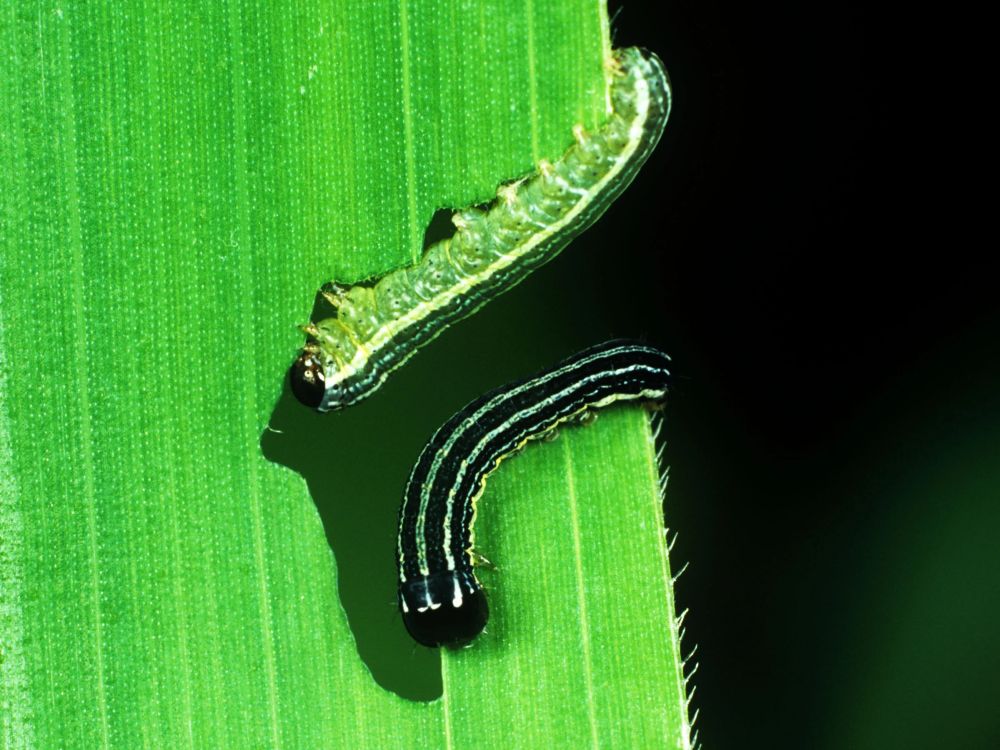Genetically Modified Caterpillar Could be Potent Solution to Fight Farm Plague
British biotech firm Oxitec, which is known for creating a genetically modified (GM) mosquito to combat dengue and other blood-borne diseases in Florida and Texas, has introduced a GM self-destructing caterpillar. The firm has some experience in creating genetically modified bugs. The goal of this genetically modified caterpillar is to stop worms from devastating rice and corn crops around the globe without having to use pesticides.
The firm and its multinational partner Bayer announced that they had developed a fall armyworm that contains a self-limiting gene that can be introduced into the male species during mating. Once the male successfully mates with a female, the subsequent egg becomes burdened with a key protein and dies immediately.
Head of the agriculture programs at Oxitec, Neil Morrison said,
Our gene produces this protein at such high levels that other natural proteins that are important for the caterpillar’s development can’t be produced. The normal cell machinery is swamped by the overproduction of this protein.
He further adds that the protein the Oxitec gene converts, only affects the female specie, meaning its toxic effect will continue only for a few generations. This new technology is different from “gene drive” technology; which passes a lethal gene throughout a targeted insect species forever that could cause a runaway genetic mutation, possibly ruining an entire species.

Image: Nigel Cattlin
The fall armyworm originated in America and has spread rapidly through 12 nations, destroying everything in their path if not controlled. According to UN’s Food and Agriculture Organization, an estimated 17.7 million tons of corn crops are destroyed annually by the fall armyworm and caused an estimated $6.3 billion in damage.
The increasing infestation has forced many growers in many developing countries to start using pesticides that can be harmful to both human health and the environment.
Ashley Tesselow, an entomology graduate student at Texas A&M University who is researching ways to control this caterpillar, said they generally do not live in winters. However, sometimes their populations can rise speedily and cause an outbreak. Although it doesn’t occur yearly, when it happens, it can result in complete yield loss.
Policy director at the Center for Food Safety, Jaydee Hanson said that the Oxitec program would only kill one of many insects that has troubled the farmers. Jaydee do not believe that introducing a GM insect can essentially control agricultural pests.
According to Morrison, Oxitec has already started small field trials in Brazil of this trademarked “friendly” fall armyworm. The firm hopes to expand the size of the trails there in 2021 upon approval of Brazilian regulators.
Oxitec had also developed a genetically modified diamondback moth and did field trials in upstate New York in 2017 that used similar self-limiting genetic modification technology to lessen the population of a caterpillar that eats cruciferous crops like cabbage, cauliflower, and broccoli. According to Morrison, when that project was completed, it showed promising results, but the company decided to switch to the fall armyworm.
There’s a lot hope on the potential success of a chemical-free solution to the fall armyworm explosion that has shuttered farms across the world’s tropical zones. If this program succeeds, a huge agricultural problem will be solved.
Via: Wired

